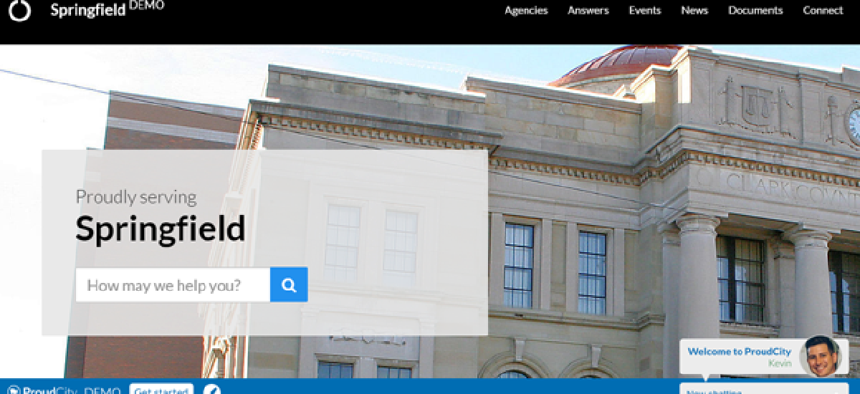Startup offers city websites as a service


Connecting state and local government leaders
ProudCity promises to take the pain out of site development for small and mid-sized city government.
Spinning up a website these days it trivially easy. It's the work that comes after launch that's the problem.
That's especially true for city governments, according to longtime civic technologist Luke Fretwell. While larger cities may have in-house developers to update code and add new functionality, he told GCN, smaller municipalities often scrape together funding for a one-time development effort, then live with the finished product for years -- only to repeat the process when new funding can be secured or the old site breaks down entirely.
So Fretwell and three other developers -- Kevin Herman, Jeff Lyon and Alex Schmoe -- created ProudCity. The new service, which launched Jan. 19, is built on the recently open-sourced WordPress codebase and promises "open source software as a service." Cities can get a secure, managed, hosted service for a monthly fee, but are also free to download all the code at any time and host it themselves.
The platform has been tailored to city-government needs, with preconfigured components to handle basic payments, service requests and other common offerings. "We want to make it easier for people to put into context what their web site would look like," Fretwell explained. "It's really customized to setting up things that are city-specific."
To get started, one need only enter the city name into a search box. ProudCity instantly generates the beginnings of a geo-tailored site, with pictures of the city (drawn from Creative Commons-licensed images on Flickr) and a ready-made map of local schools, police stations, parks, libraries and other public facilities (powered by FourSquare data, MapBox and OpenStreetMap).
The cloud-based service also comes ready to integrate with several other popular online services -- including SeeClickFix for 311 requests, MailChimp for email list management and a suite of the top social media platforms. The social media integrations, Fretwell said, can help thinly staffed governments "cross-pollinate" -- pull in content that's already being posted to FaceBook, YouTube and elsewhere so site managers can "set it and forget it."
According to Herman, "the administrative side is what gets a lot of oohs and ahhs when we're talking to city managers," because so many other solutions effectively force a city to start with a blank slate. "Showing that really does it."
The team also aims to help with the site-specific content, drawing on the four founders' past work on local government projects. The default "answers" section is prepopulated with stock responses for common citizen-service requests, which can then be edited with a given city's contact details and other specifics. There are also best practices guides for city FAQs and citizen-focused content creation.
If a city official likes what she sees in the online demo, a quick registration is all that's required to "claim" a city and start building a full-fledged beta site. Only after a beta is built and ready to launch would a city government need to begin paying for the platform.
ProudCity is starting slow -- a single unnamed Ohio city is serving as a pilot project -- and the team is still working on its pricing structure for the service. "Claims" by local governments will be reviewed and handled individually -- there is no automatic authentication process, and the team wants to work hand-in-hand with each interested city.
Fretwell said this test-and-refine approach will produce a better platform for everyone. "Based on analytics and user-driven design, we’ll iterate and build a better product every day," he wrote in a blog post announcing the new site. "[A]nd every city will immediately realize the benefits."
NEXT STORY: AWS adds NEXRAD open data tools




